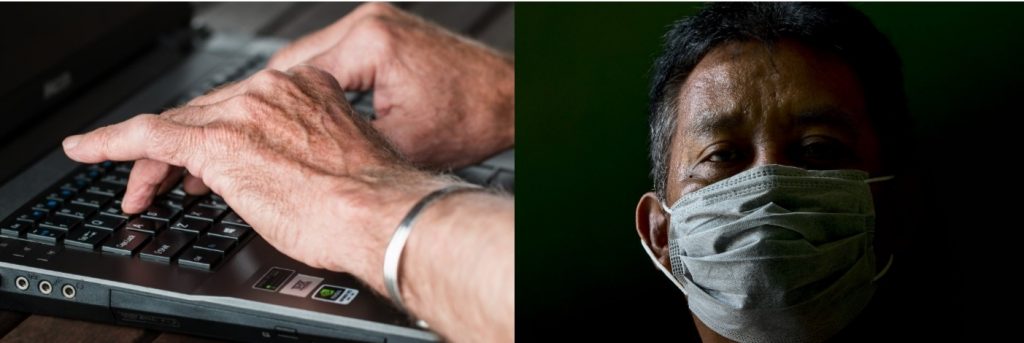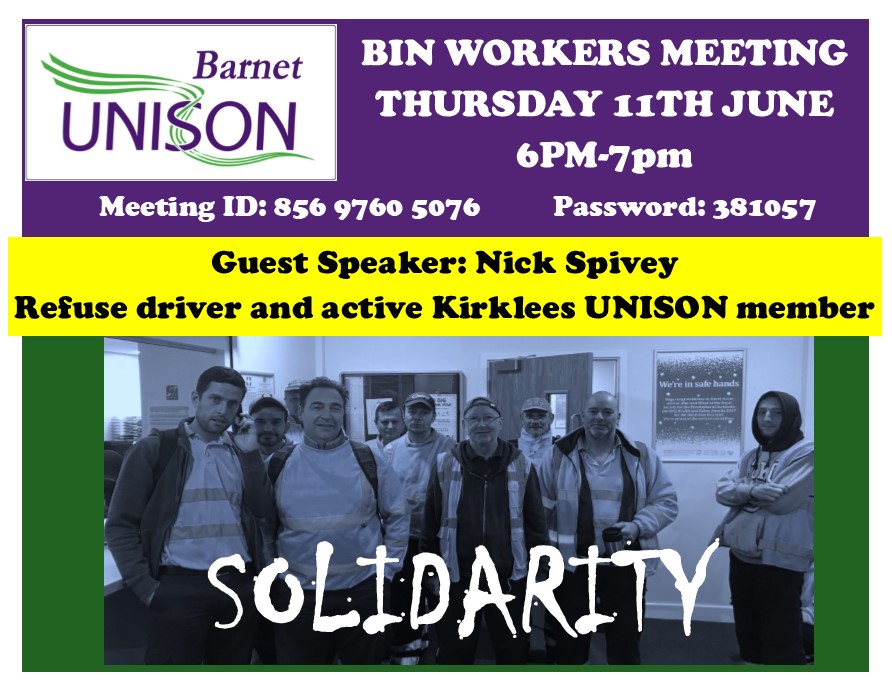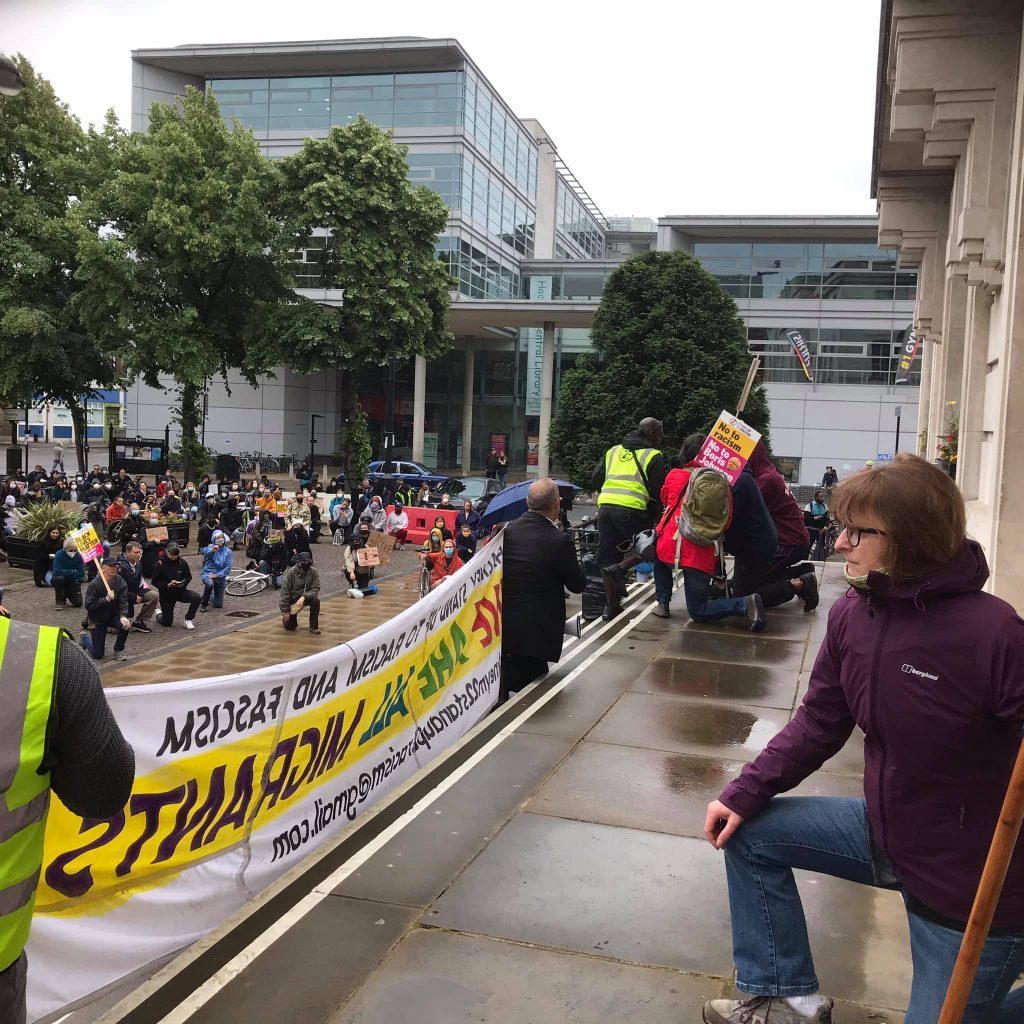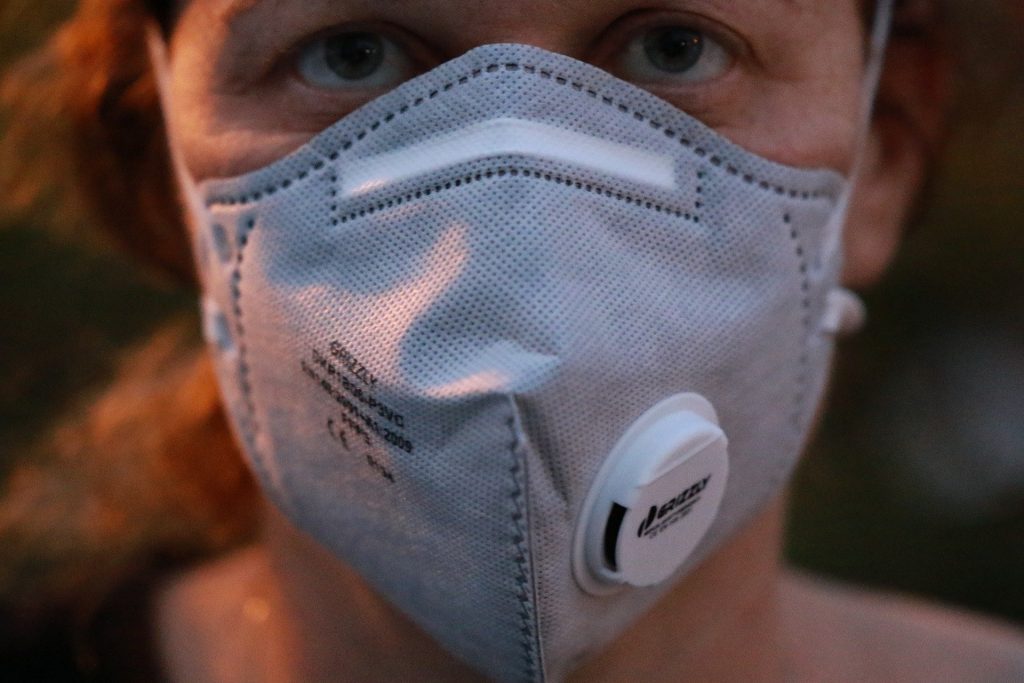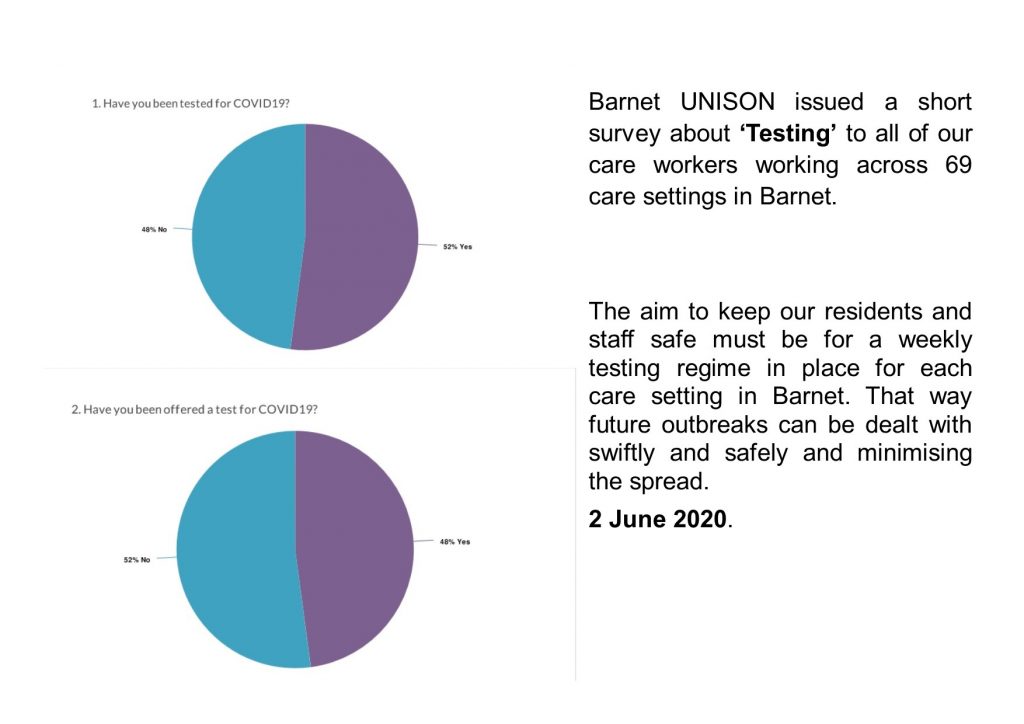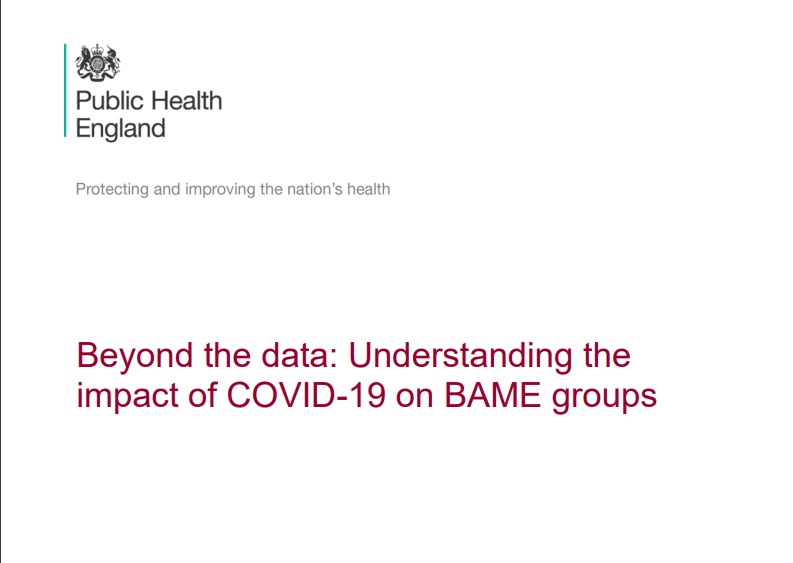
The following extracts including the Recommendations are from the Executive Summary of “Beyond the data: Understanding the impact of COVID-19 on BAME groups.”(Source: https://assets.publishing.service.gov.uk/government/uploads/system/uploads/attachment_data/file/892376/COVID_stakeholder_engagement_synthesis_beyond_the_data.pdf )
“Stakeholders expressed deep dismay, anger, loss and fear in their communities about the emerging data and realities of BAME groups being harder hit by the COVID-19 Beyond the Data: Understanding the Impact of COVID-19 on BAME Communities pandemic than others, exacerbating existing inequalities. Many had lost colleagues or family members to the disease, and nearly all are experiencing the impact of the disease on their communities with the significant social, physical and mental health impacts and complications.”
“Stakeholders pointed to racism and discrimination experienced by communities and more specifically by BAME key workers as a root cause affecting health, and exposure risk and disease progression risk.”
“Strategies to create healthy and supportive workplaces (within and outside the health service) that have zero tolerance for discrimination and empower BAME staff to raise concerns about occupational risk and safety are essential.”
“The unequal impact of COVID-19 on BAME communities may be explained by a number of factors ranging from social and economic inequalities, racism, discrimination and stigma, occupational risk, inequalities in the prevalence of conditions that increase the severity of disease including obesity, diabetes, CVD and asthma.”
“The engagement sessions highlighted the BAME groups deep concern and anxiety that if lessons are not learnt from this initial phase of the epidemic, future waves of the disease could again have severe and disproportionate impacts. All were united in the commitment that urgent, collaborative and decisive action is required to avoid a repeat of this in the future.”
“Recommendations
1. Mandate comprehensive and quality ethnicity data collection and recording as part of routine NHS and social care data collection systems, including the mandatory collection of ethnicity data at death certification, and ensure that data are readily available to local health and care partners to inform actions to mitigate the impact of COVID-19 on BAME communities.
2.Support community participatory research, in which researchers and community stakeholders engage as equal partners in all steps of the research process, to understand the social, cultural, structural, economic, religious, and commercial determinants of COVID-19 in BAME communities, and to develop readily implementable and scalable programmes to reduce risk and improve health outcomes.
3. Improve access, experiences and outcomes of NHS, local government and integrated care systems commissioned services by BAME communities including: regular equity audits; use of health impact assessments; integration of equality into quality systems; good representation of black and minority ethnic communities among staff at all levels; sustained workforce development and employment practices; trust-building dialogue with service users.
4. Accelerate the development of culturally competent occupational risk assessment tools that can be employed in a variety of occupational settings and used to reduce the risk of employee’s exposure to and acquisition of COVID-19, especially for key workers working with a large cross section of the general public or in contact with those infected with COVID-19.
5. Fund, develop and implement culturally competent COVID-19 education and prevention campaigns, working in partnership with local BAME and faith communities to reinforce individual and household risk reduction strategies; rebuild trust with and uptake of routine clinical services; reinforce messages on early identification, testing and diagnosis; and prepare communities to take full advantage of interventions including contact tracing, antibody testing and ultimately vaccine availability.
6. Accelerate efforts to target culturally competent health promotion and disease prevention programmes for non-communicable diseases promoting healthy weight, physical activity, smoking cessation, mental wellbeing and effective management of chronic conditions including diabetes, hypertension and asthma.
7. Ensure that COVID-19 recovery strategies actively reduce inequalities caused by the wider determinants of health to create long term sustainable change. Fully funded, sustained and meaningful approaches to tackling ethnic inequalities must be prioritised.”
To view the full report click on the link below.
Beyond the data: Understanding the impact of COVID-19 on BAME groups.
https://assets.publishing.service.gov.uk/government/uploads/system/uploads/attachment_data/file/892376/COVID_stakeholder_engagement_synthesis_beyond_the_data.pdf
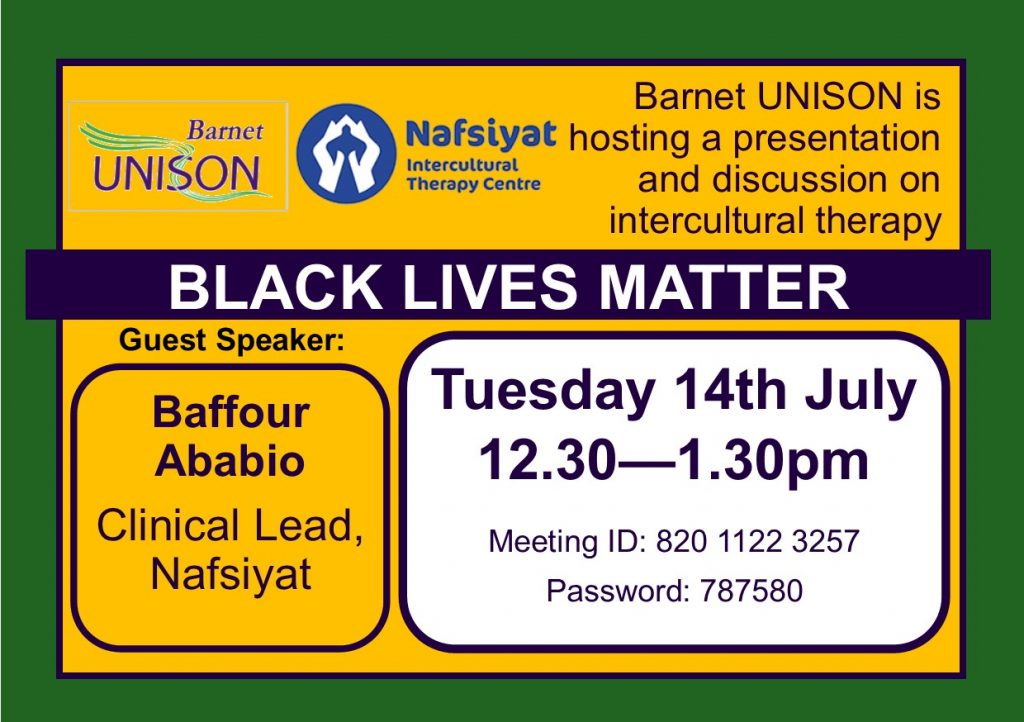


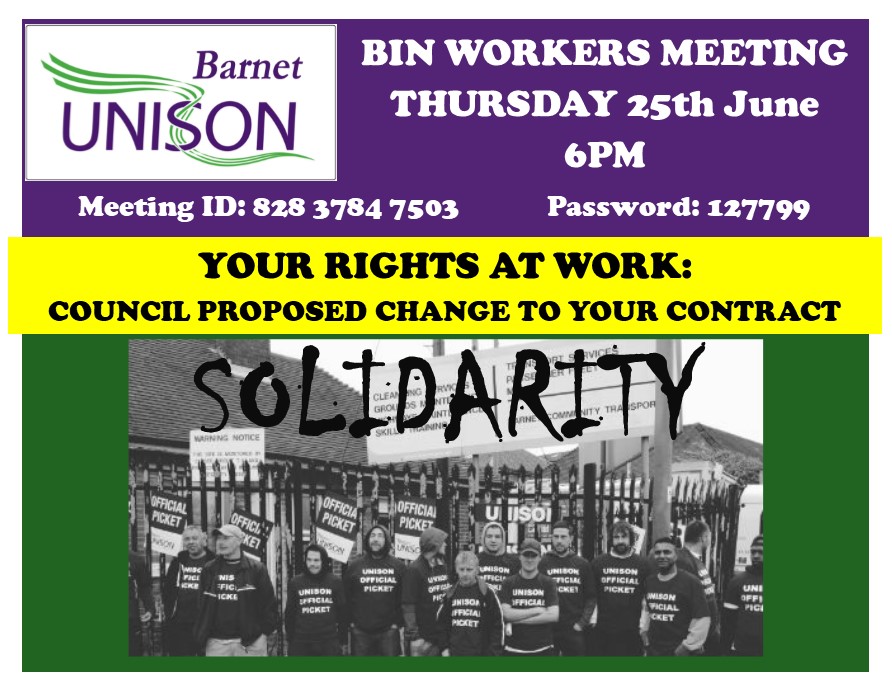 Barnet UNISON Bin workers Zoom Meeting.
Barnet UNISON Bin workers Zoom Meeting.
